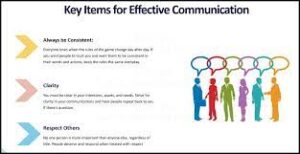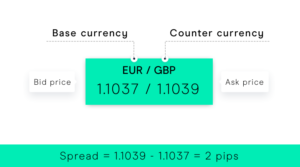A coronavirus vaccine won’t be a silver bullet against the COVID pandemic, but public health experts say it’s an important step that could start the process of a return to normalcy. And four companies (alongside their partners) are vying for first-to-market entry with late-stage trials underway.
Firms ranging from pharmaceutical giants to startup biotechs—in the U.S. and abroad—are all part of this race. But the regulatory process can be a labyrinth, and the fundamental question of scientific accuracy for a vaccine that will ostensibly be distributed to hundreds of millions of people is critical.
“The FDA will not authorize or approve a vaccine we won’t be confident in giving to our families,” said Food and Drug Administration (FDA) commissioner Stephen Hahn during a U.S. Senate hearing on Wednesday.
Hahn emphasized the role of science in the development process as the agency has come under scrutiny for potentially lax standards for a vaccine. Multiple outlets reported the FDA was slated to release stricter guidance in the face of public criticism and an uncertain public.
That should have an impact on where the various companies developing these vaccines stand.
Pfizer/BioNTech
Pfizer has been among the most optimistic companies in the COVID vaccine scuffle.
The American drug giant has been working with German biotech BioNTech to create a candidate. According to CEO Albert Bourla of Pfizer, they remain confident that they’ll have a good idea, at the very least, whether or not their treatment works this fall.
“I think by the end of October we have a very good chance to know if the vaccine works or not,” Bourla said during a virtual panel discussion with Fortune earlier this month.
This gets to what FDA commissioner Hahn said during his testimony on Wednesday—the need for large-scale trials to establish safety and efficacy. But there’s a caveat here: Hahn has also said that the agency may consider an emergency use authorization, which differs from a full-on approval and has lower standards, depending on the data submitted by drug makers. The reported upcoming guidance for such authorizations could lift that standard. An emergency authorization may potentially be achieved sometime this fall even if a full approval isn’t.
Currently, Pfizer may be the first one to know, at the very least, whether its COVID vaccine works, according to Bloomberg. The clinical study includes some 44,000 people.
Moderna
Moderna sparked some big buzz earlier this summer with its COVID vaccine candidate, mRNA-1273. It would be the upstart biotech’s first approved drug ever if it were to cross the regulatory finish line.
The company’s science is interesting. To put it simply, “mRNA technology” literally re-engineers the biology of cells to fight off various diseases. Moderna has had its share of skeptics since none of its drugs, and the technology which make them possible, have paid off in real life to date. But developing an effective COVID vaccine could reverse that narrative.
Moderna began its phase 3 clinical trials in collaboration with the National Institutes of Health (NIH) and the Biomedical Advanced Research and Development Authority (BARDA) in late July. Moderna is in the process of enrolling some 30,000 participants in its trial. CEO Stephane Bancel told CNBC last week that it expects to have enough data to know whether or not the vaccine is effective by November.
Johnson & Johnson
The COVID vaccine being developed by Johnson & Johnson’s pharmaceutical arm, Janssen, just entered into phase 3 trials on Wednesday, the company said. While initial results from those trials will take several months to produce, the drug itself has a key difference from its competitors.
J&J’s vaccine is a single-dose, rather than multi-dose like the Pfizer and Moderna candidates. And the trial announced on Wednesday is massive in scope. It will encompass 60,000 participants across at least eight countries including the U.S., South Africa, and Brazil.
Success in drug development is usually dictated by the first-to-market advantage. But simplicity of use—one shot, rather than two—during a pandemic could give J&J a leg up.
AstraZeneca and Oxford
British drug giant AstraZeneca teamed up with educational giant University of Oxford for its own coronavirus vaccine candidate, AZD1222. That process hit a road block recently with a clinical trial pause spurred by a study participant who developed a serious side effect.
AstraZeneca CEO Pascal Soriot was still optimistic after that turn of events. This is just an inherent risk in drug development, after all.
The sunny outlook, for now, seems to have been prescient. On September 13, U.K. health authorities recommended that the study resume. However, its status in America and several other countries’ trials is still shaky. On Wednesday, U.S. Department of Health and Human Services (HHS) secretary Alex Azar said it was still on hold.
More coronavirus coverage from Fortune:
- Will the pandemic give us a Sputnik moment?
- Researchers find a “druggable pocket” in coronavirus that could lead to new antivirals
- When Bill Gates thinks we’ll have a COVID-19 vaccine—and why that won’t be the end of the pandemic
- The CEO of the Serum Institute of India on his company’s COVID-19 vaccine campaign
- How a company that makes COVID tests is keeping its own 50,000 employees safe




